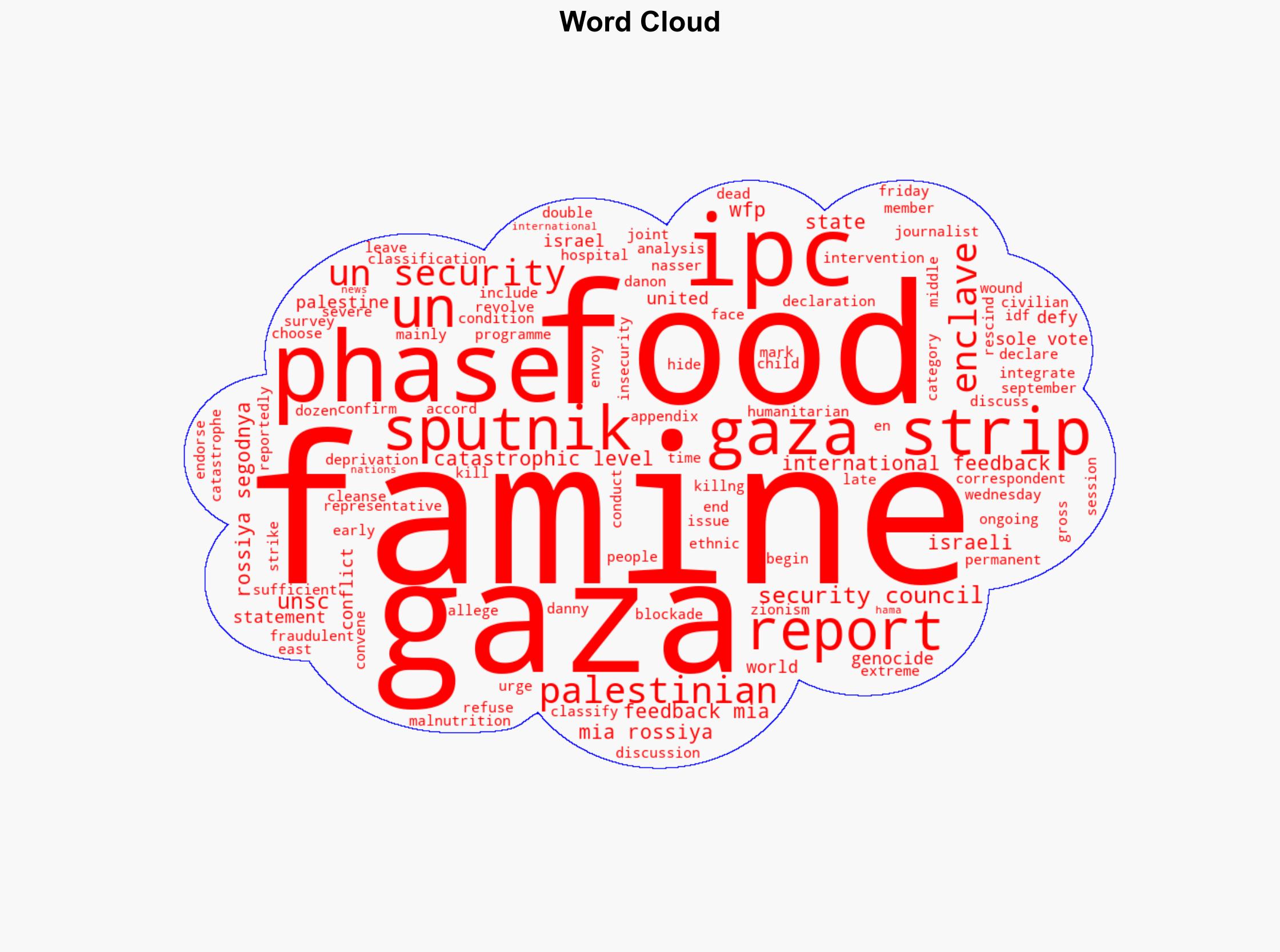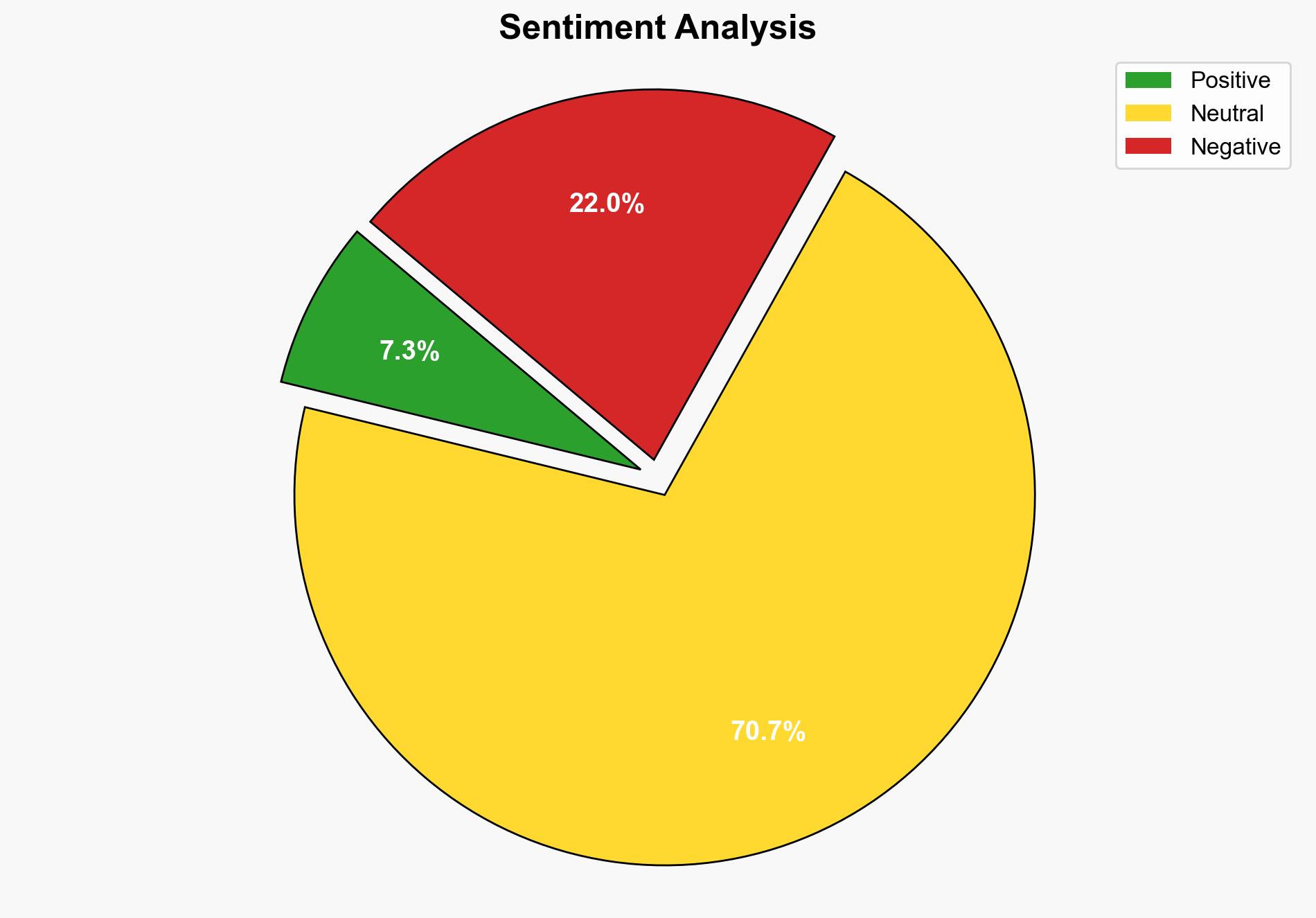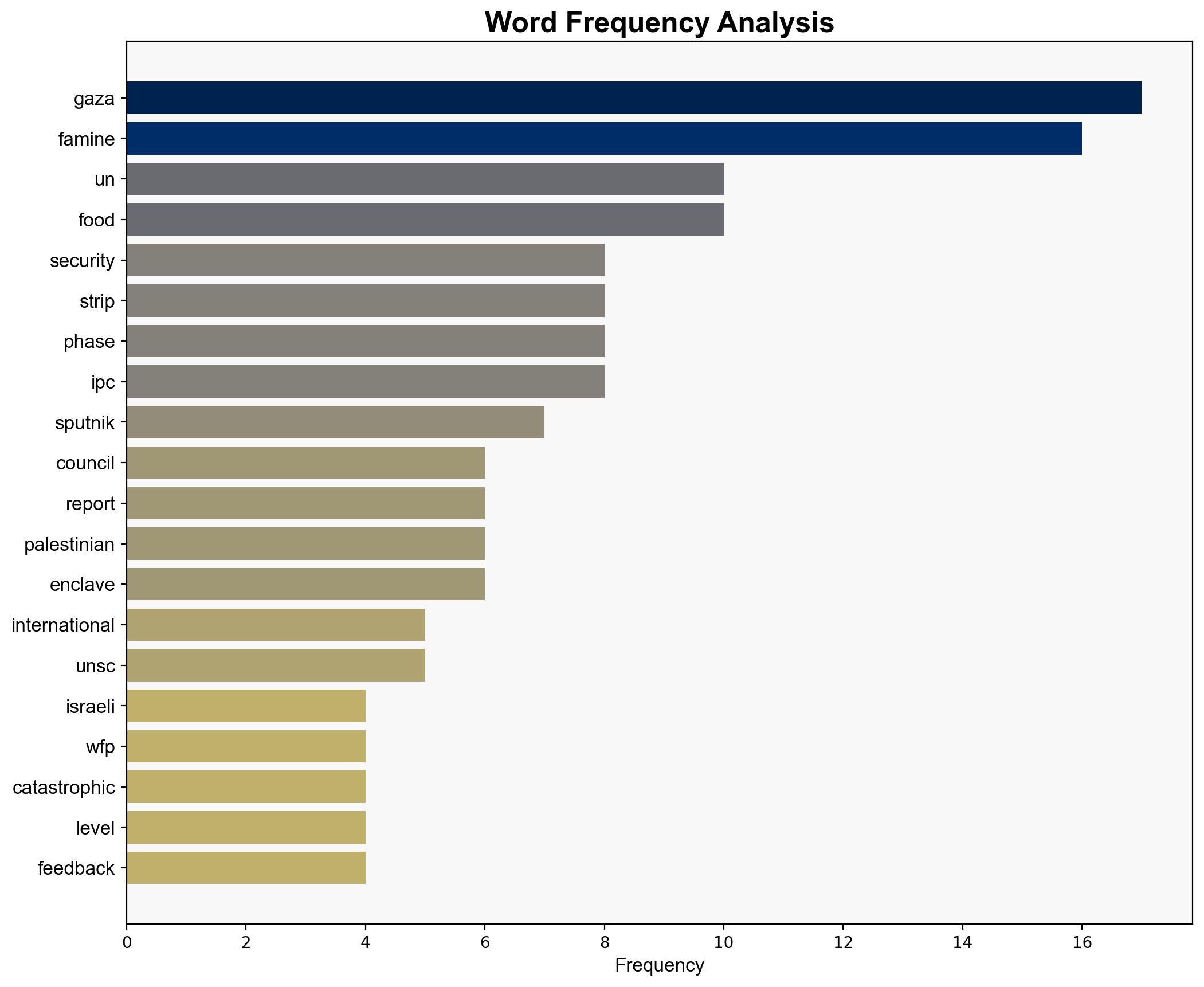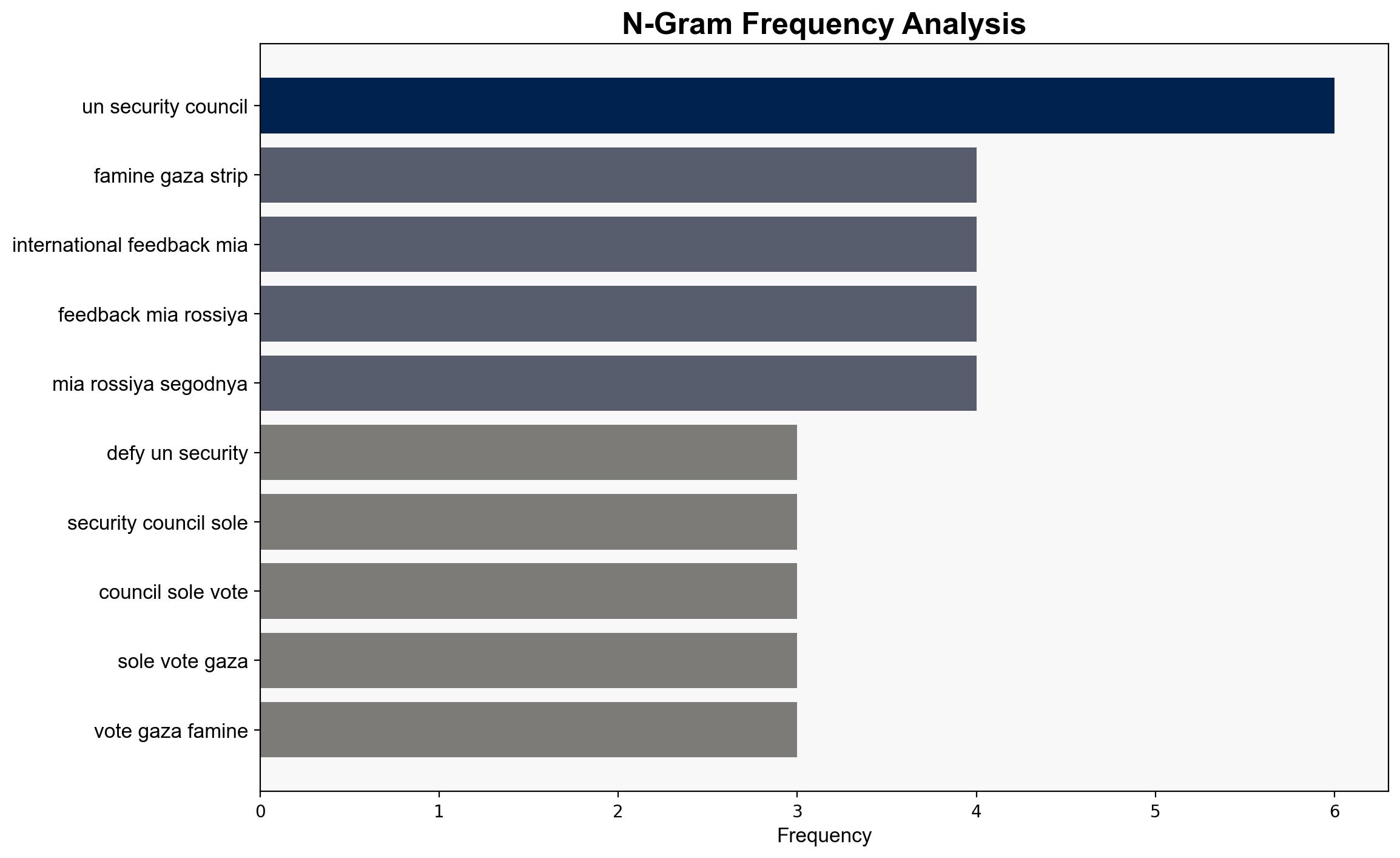US Defies UN Security Council Sole Vote Against Gaza Famine Statement – Sputnikglobe.com
Published on: 2025-08-28
Intelligence Report: US Defies UN Security Council Sole Vote Against Gaza Famine Statement – Sputnikglobe.com
1. BLUF (Bottom Line Up Front)
The United States’ decision to vote against the UN Security Council’s statement on the Gaza famine is likely driven by strategic geopolitical interests and alliances, particularly with Israel. The most supported hypothesis is that the US aims to maintain its geopolitical influence and support for Israel, despite humanitarian concerns. The confidence level in this assessment is moderate, given the complexity of international relations and potential undisclosed factors. It is recommended to monitor US diplomatic communications and potential shifts in policy regarding the Israeli-Palestinian conflict.
2. Competing Hypotheses
1. **Hypothesis 1:** The US vote against the Gaza famine statement is primarily motivated by its strategic alliance with Israel, aiming to support Israeli narratives and actions in the region.
2. **Hypothesis 2:** The US decision is based on skepticism about the accuracy of the famine reports and concerns over the politicization of humanitarian issues by other UN members.
Using the Analysis of Competing Hypotheses (ACH) 2.0, Hypothesis 1 is better supported due to historical patterns of US-Israel relations and consistent US policy stances in the UN. Hypothesis 2 lacks substantial evidence as the US has not publicly questioned the validity of the famine reports.
3. Key Assumptions and Red Flags
– **Assumptions:** The US prioritizes its strategic alliance with Israel over humanitarian concerns. The famine reports are accurate and not politically manipulated.
– **Red Flags:** Lack of transparency in US decision-making processes. Potential bias in famine reporting, as suggested by Israeli representatives.
– **Blind Spots:** Internal US deliberations and potential undisclosed diplomatic negotiations influencing the vote.
4. Implications and Strategic Risks
– **Geopolitical Risks:** Strained US relations with other UN members advocating for humanitarian intervention in Gaza.
– **Escalation Scenarios:** Increased tensions in the Middle East if humanitarian conditions worsen without international intervention.
– **Psychological Dimensions:** Perception of US indifference to humanitarian crises could impact its global image and soft power.
5. Recommendations and Outlook
- Engage in diplomatic dialogues to clarify US positions and intentions, reducing potential misunderstandings with other UN members.
- Monitor humanitarian conditions in Gaza to anticipate and mitigate potential crises.
- Scenario Projections:
- **Best Case:** US facilitates a balanced approach, supporting humanitarian aid while maintaining strategic alliances.
- **Worst Case:** US-Israel relations lead to further isolation of the US in international forums.
- **Most Likely:** Continued US support for Israel with limited engagement in humanitarian discussions.
6. Key Individuals and Entities
– Danny Danon (Israeli Permanent Representative to the UN)
– UN World Food Programme (WFP)
– Integrated Food Security Phase Classification (IPC)
7. Thematic Tags
national security threats, geopolitical strategy, humanitarian crisis, Middle East conflict





